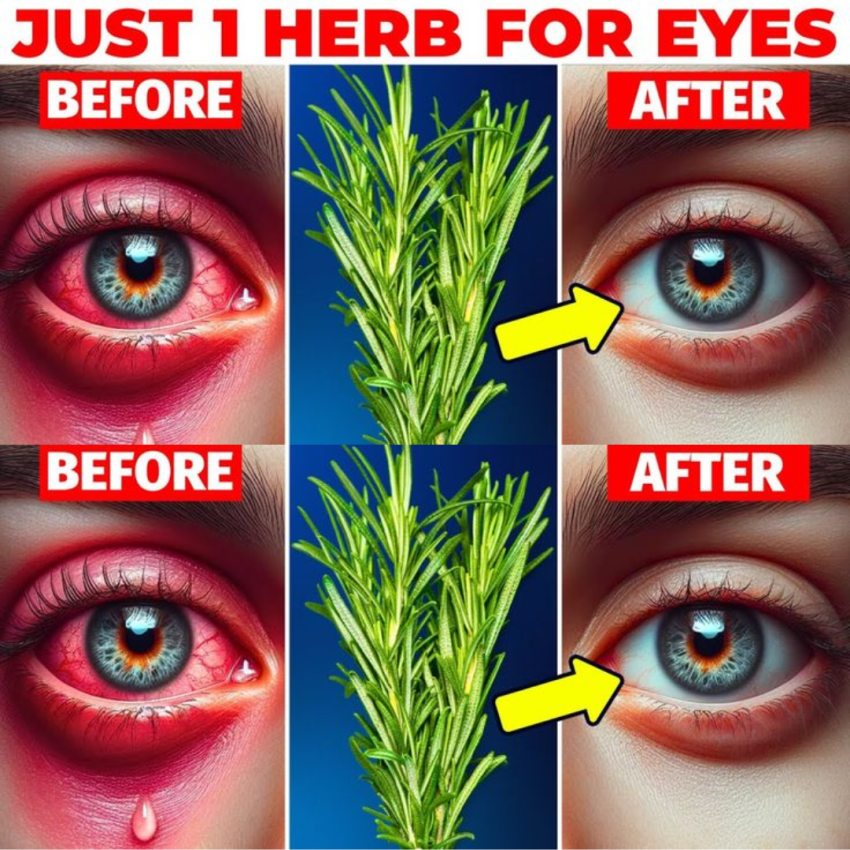Our eyes are one of our most precious senses, and it’s essential to take care of them. While modern medicine offers various solutions for eye problems, many people are turning to natural remedies to improve their eye health. In this post, we’ll explore eight powerful herbs that can help protect your eyes and restore clear vision.
1. Eyebright:
- Benefits: Eyebright is a popular herb used to soothe eye inflammation, reduce redness, and improve vision. It’s often used to treat conditions like conjunctivitis and eye strain.
- How to Use: Eyebright can be used as a tea, tincture, or eye compress.
2. Bilberry:
- Benefits: Bilberry is rich in antioxidants, particularly anthocyanins, which can help improve night vision, reduce eye fatigue, and protect against age-related macular degeneration.
- How to Use: Bilberry can be consumed in supplement form or as a juice or tea.
3. Ginkgo Biloba:
- Benefits: Ginkgo biloba can improve blood circulation to the eyes, reducing eye strain and fatigue. It may also help protect against age-related macular degeneration.
- How to Use: Ginkgo biloba is typically taken in supplement form.
4. Turmeric:
- Benefits: Turmeric contains curcumin, a powerful antioxidant with anti-inflammatory properties. It can help reduce inflammation in the eyes and protect against age-related eye diseases.
- How to Use: Turmeric can be consumed in powdered form, added to curries and other dishes, or taken as a supplement.
5. Gotu Kola:
- Benefits: Gotu kola is a traditional Ayurvedic herb that can improve blood circulation to the eyes, reducing eye strain and fatigue. It may also help protect against age-related macular degeneration.
- How to Use: Gotu kola is commonly used in herbal teas and supplements.
6. Fennel:
- Benefits: Fennel seeds can help improve digestion, which can indirectly benefit eye health. They may also help reduce eye inflammation.
- How to Use: Fennel seeds can be brewed into a tea or consumed as a spice.
7. Peppermint:
- Benefits: Peppermint can help soothe tired eyes and reduce inflammation. It can also help relieve headaches and migraines, which can affect vision.
- How to Use: Peppermint essential oil can be diluted and applied topically to the temples or used in a diffuser.
8. Chamomile:
- Benefits: Chamomile has calming properties that can help soothe eye irritation and inflammation. It can also help improve sleep quality, which is important for overall eye health.
- How to Use: Chamomile can be brewed into a tea or used as a compress.
Important Considerations:
- Consult Your Doctor: Before using any herbal remedies, consult with your doctor, especially if you have underlying health conditions or are taking medications.
- Allergic Reactions: Some people may be allergic to certain herbs. If you experience any adverse reactions, discontinue use and seek medical attention.
- Quality and Purity: Ensure that you purchase high-quality herbal products from reputable sources.
- Moderation: While herbal remedies can be beneficial, it’s important to use them in moderation and avoid excessive intake.
By incorporating these powerful herbs into your daily routine, you can take proactive steps to protect your eye health and maintain clear vision.
